- Open Knowledge Maps
- Your guide to scientific knowledge
At Open Knowledge Maps, our aim is to improve the visibility of scientific knowledge.
We partner with funders, research organizations and infrastructures that share our goals to develop innovative open science projects.
Get in touch, if you are interested in such a collaboration.
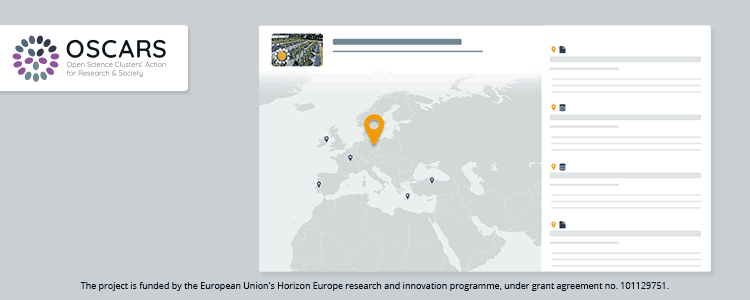
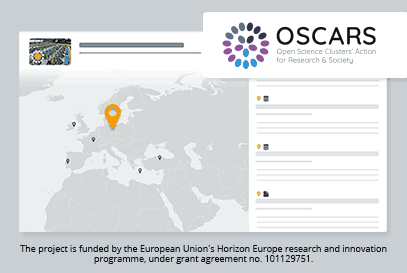
The AQUANAVI project aims to create an interactive atlas of aquatic mesocosm-based experimental research. Data, publications, reports and information generated by the AQUACOSM consortium and other mesocosm facilities worldwide will be integrated into a single, accessible platform incorporating Open Knowledge Maps' AI-driven visual discovery tools. The project will foster collaborations and, by enhancing data FAIRness, it will facilitate fast discovery and efficient use of aquatic RIs globally, accelerating the development of environmental mitigation strategies.
VisConnect is a collaboration with the IT:U Interdisciplinary Transformation University Austria that aims to transform the research assessment process. Harnessing Open Knowledge Maps' AI-driven visual discovery techniques, VisConnect will allow IT:U to better identify outstanding interdisciplinary researchers from a global field. By providing a comprehensive overview and incorporating diverse research outputs, VisConnect will support institutions in adopting assessment practices in line with initiatives such as DORA and CoARA.
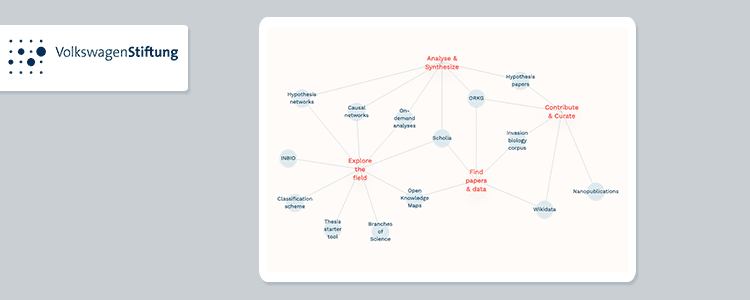
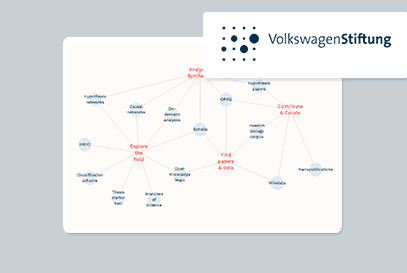
Biological invasions are on the rise, and their global impacts on ecosystems, economies and human health are a major challenge. Invasion science is critical to mitigate invader impacts, yet due to the strong increase of data and information in this area, it has become difficult to acquire and maintain an overview of the field. To address this challenge, we have developed an interactive atlas of invasion science in collaboration with Leibniz Institute of Freshwater Ecology and Inland Fisheries (IGB) and FU Berlin.
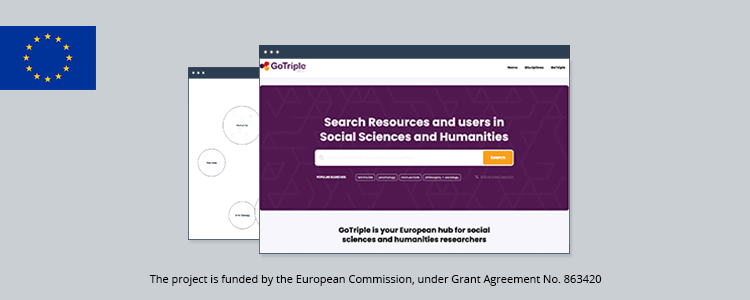
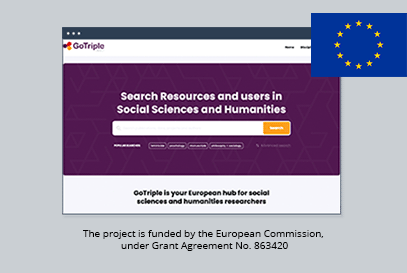
TRIPLE was a EU project funded under the Horizon 2020 framework. TRIPLE's goal was to create a comprehensive free and open discovery solution for the social sciences and humanities (SSH). Under the lead of Huma-Num (CNRS), a consortium of 18 partners from 12 countries developed GoTriple as a core service of OPERAS and the European Open Science Cloud (EOSC).
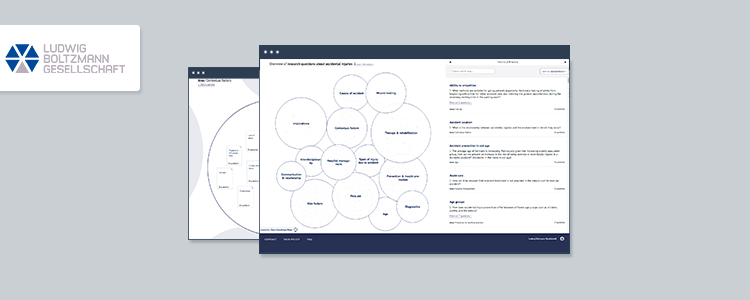
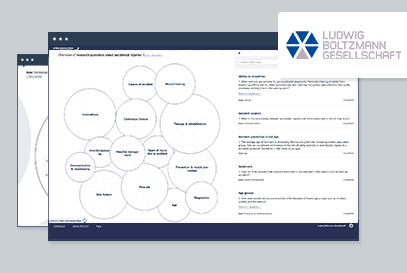
In this crowd-sourcing project called Ideenbox (in English: Ideas Box), LBG Open Innovation in Science Center (OIS Center) collected unsolved health issues from citizens based in Austria. Open Knowledge Maps created a visualization of all collected research questions.
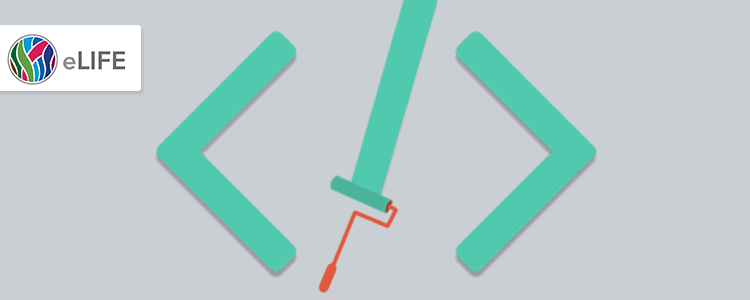
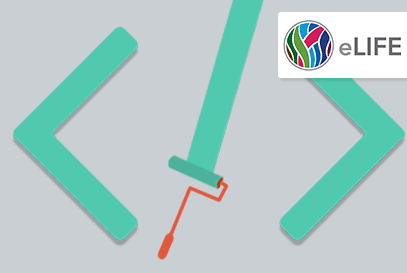
With eLife's backing, we performed a necessary refactoring of the Open Knowledge Maps frontend. The refactoring improved the serviceability, reusability and structure of our frontend. The aim was to make it easier to introduce new functionality crucial to fulfilling important use cases, such as integrating Open Knowledge Maps into user workflows and enabling future integrations (e.g. of dataset indices), and reaching our goal of a collaborative discovery environment.
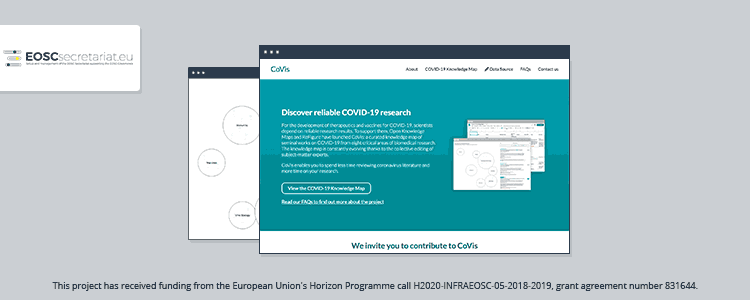
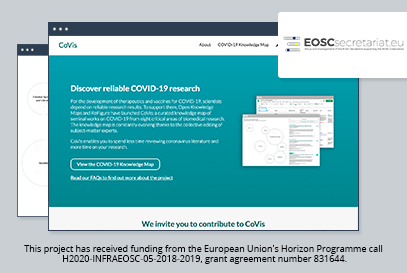
CoVis was a project in collaboration with ReFigure funded by EOSCSecretariat. CoVis enabled scientists to kick-start their COVID-19 research by providing a curated knowledge map of seminal works on COVID-19 from eight critical areas of biomedical research. The knowledge map was constantly evolving thanks to the collective editing of subject-matter experts.
LinkedCat+ was a project funded by the Austrian Academy of Sciences (OeAW) to make the early proceedings of the OeAW accessible, discoverable and reusable. LinkedCat+ provides open access fulltexts and bibliographic catalogue data as linked open data, and allows for visual exploration of this data.


CRIS Vis II was a project in collaboration with the Open Innovation in Science Center of the Ludwig Boltzmann Gesellschaft (LBG). The second iteration of CRIS Vis enabled researchers, practitioners and citizens to explore crowd-sourced research questions related to accidental injuries.
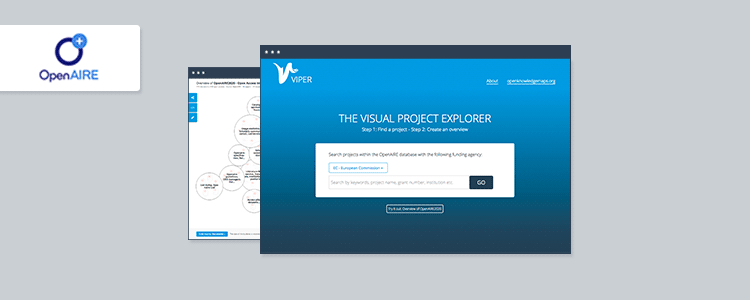
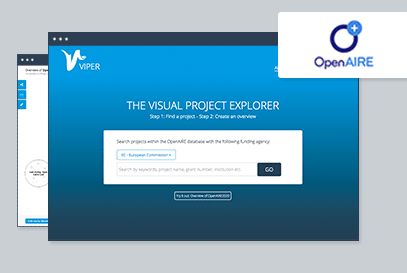
VIPER was an OpenAIRE tender project to create a prototype of the Visual Project Explorer that provided overviews of over 2.4 million research projects indexed by OpenAIRE. VIPER enabled funders, institutions and researchers to systematically explore a project’s output, and to understand its impact in different areas.
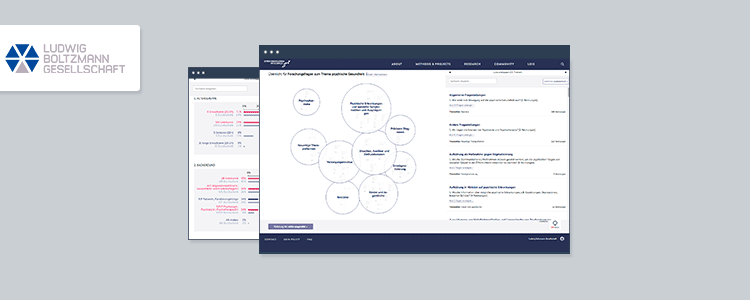
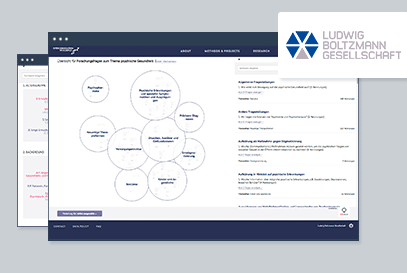
CRIS Vis on mental health was a project in collaboration with the Open Innovation in Science Center of the Ludwig Boltzmann Gesellschaft (LBG). It enabled researchers, practitioners and citizens to explore crowd-sourced research questions related to mental health.